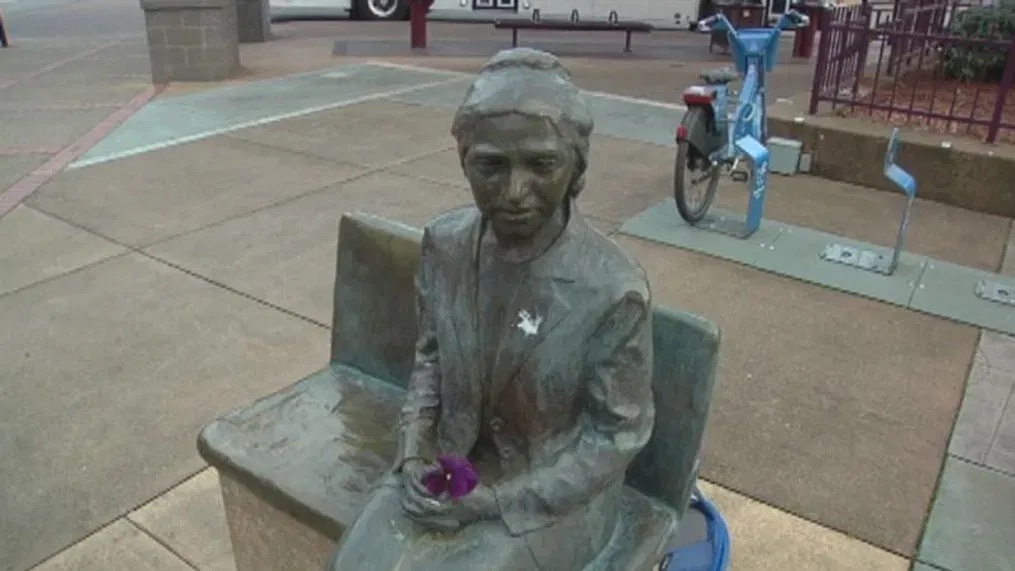BEST honors Rosa Parks, recognizes Transit Equity Day
BEST joins people across the country in honoring Rosa Parks and recognizing Transit Equity Day on her birthday. Everyone has a right to safe, reliable, environmentally-sustainable, and affordable transit that is accessible to all, regardless of income, national origin, race, gender identity, sexual orientation, age, religion, or ability.

Rosa Parks (February 4, 1913–October 24, 2005) was an African-American civil rights activist best known for her pivotal role in the Montgomery bus boycott. (Source: Wikipedia)
On her birthday, BEST joins people across the country in honoring her efforts and recognizing Transit Equity Day.
Public transit provides basic mobility for many in our communities. It is also essential urban infrastructure—just like roads, bridges, tunnels and utilities—that is crucial to the economic, social and environmental well-being of all our regions.
Everyone has a right to a public transit system that includes:
- Safe, reliable, environmentally-sustainable and affordable transit that is accessible to all, regardless of income, national origin, race, gender identity, sexual orientation, age, religion, or ability.
- An affordable public transit system that reliably connects people in all communities to the places we need to travel: home, work, school, places of worship, shopping, health, and recreation, in as efficient, and timely a manner as possible. We must ensure that all communities have access to transit; no community should be left behind. Public transit in rural, less densely populated communities should be provided in any master transportation plan despite the special challenges that may present.
- Living wages, benefits, safe working conditions, and union rights for transit workers, including those who manufacture transit equipment, and access to family-sustaining transit jobs and training opportunities for people from underserved communities.
- A just transition for workers and communities who are dependent on our current automobile and highway-centered transportation system, to ensure that no one is left behind as we transition to a more public, accessible, and cleaner transit-based system.
- Rapid transition of our transit systems to electrified, non-polluting transit powered by electricity from renewables. This transition should be made for school buses also.
- Safe, healthy and livable neighborhoods that are connected by public transportation and by bicycle pathways and sidewalks, and that are planned to expand safe access to transit and reduce single occupancy vehicle miles traveled.
- Dedicated and sustainable public funding for public transit.
(Source: Labor Network for Sustainability)
External links
- Transit Equity Day (Labor Network for Sustainability)
- Bridging the Gap: Commemorating Transit Equity Day (Voices for Public Transportation)
- Transit Equality Day (Wikipedia)
- Equity Transit
- Strides for Social Justice (PeaceHealth)
- Eugene-Springfield NAACP
Further reading
- February 4 is Transit Equity Day (Lane Transit District’s Bus Talk, Feb. ’24)
- Ride LTD: Preserving the past, honoring Eugene’s Black history (KMTR, 2/2/24)
- Why do we celebrate Transit Equity Day? (Greater Greater Washington, 2/28/23)
- Rosa Parks Transit Equity Day is Feb. 4 (Lane Transit District, 2/1/22)
- Ferry Street Village: Lane County’s first Black neighborhood demolished in 1949 for bridge (KMTR, 2/10/21)